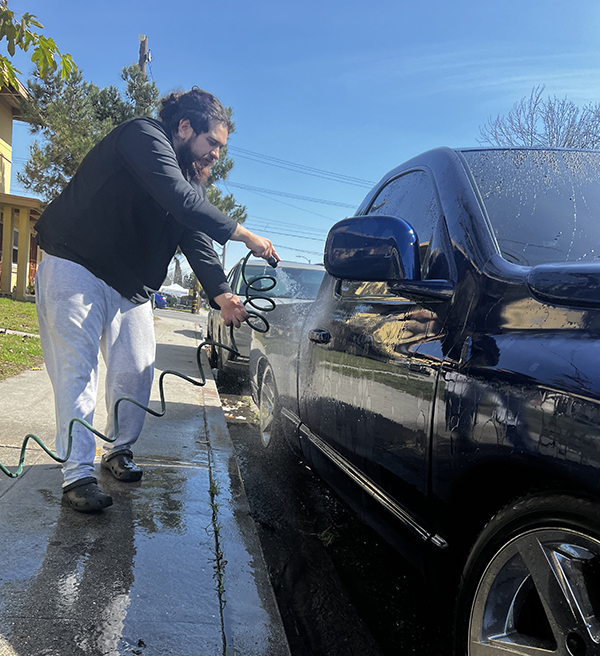Watts residents want pipes tested for lead


Photo by Stephen Oduntan
By Stephen Oduntan
Contributing Writer
WATTS — Local residents concerned about lead contamination in their homes want city and state officials to require landlords of older properties in the area to test for lead.
“The government needs to mandate lead testing in older homes,” said Tim Watkins, leader of the Better Watts Initiative, who has been vocal about the need for stronger oversight. “We can’t rely on landlords to self-regulate. If City officials continue to insist the water meets safety standards, but independent tests show lead contamination in 80% of homes.
Unlike the situation in Flint, Michigan, more than a decade ago where the water supply itself was tainted, Watts’ problem starts inside private homes. The Los Angeles Department of Water and Power routinely tests its water supply, but once it enters decades-old lead pipes, corroded fixtures and outdated soldering, contamination begins.
City Councilman Tim McOsker has pushed for more testing, but his office confirms that homeowners and landlords are not legally required to inspect or replace old pipes.
“The city has prioritized outreach efforts, including door-to-door campaigns, to inform residents that DWP offers free water testing,” McOsker’s office stated. “But we are not yet at the stage of securing funding for pipe replacements.”
Even if tests confirm lead in a home’s water, landlords don’t have to fix it, and no financial assistance program exists to help renters or homeowners afford costly replacements — estimated at $8,000 to $20,000 per home.
Children face the greatest risk, as lead accumulates in bones and can be passed from mothers to babies during pregnancy. The Los Angeles Unified School District tests students for lead, but long-term exposure tracking remains inadequate.
Many families in Watts refuse to drink tap water, opting for bottled alternatives despite the financial strain.
“I don’t really drink it anymore because I’m sure something is wrong with it,” said Ronald Watkins, whose family has lived in Watts for nearly a century. “Most people around here don’t really drink that water. They always buy bottled water or something like that.”
With no legal mandate to remove lead pipes, low-income renters in Watts face the greatest risk.
“The biggest problem is risk aversion,” Watkins said. “The Los Angeles Department of Water and Power and the Housing Authority of the City of Los Angeles don’t want to acknowledge how dangerous this is because they fear legal liability.”
Watkins’ organization conducted independent water tests and found lead contamination spiking once inside private pipes.
“They were telling us that 90% of units in this area likely contain lead,” said Christina Reese, a Watts resident battling breast cancer. “That’s why I bought my own filters. But not everybody can do that.”
Landlords remain legally protected under the Residential Lead-Based Paint Hazard Act of 1992, which requires disclosure of lead risks but does not mandate water testing or pipe replacement.
The California State Water Resources Control Board offers a Lead Service Line Replacement Funding Program, covering 100% of costs in disadvantaged communities — but most residents aren’t even aware the program exists.
“L.A. County relies on water agencies and nonprofits to spread the word,” said an representative of the county Department of Public Health.. “We use direct mail and email communications, but we encourage residents to contact their water provider.”
Advocates argue that shifts the burden onto residents, rather than ensuring funding is automatic and accessible.
Unlike Watts, Flint’s crisis forced policy changes — lead pipes were eventually replaced after national outrage and lawsuits. Watts residents have no such guarantees.
City officials have pledged to expand testing and outreach, but activists insist that policy changes must follow.
Meanwhile, Watts residents remain in limbo, unsure when — or if — real change will come.
As litigation against corporate polluters like Atlas Metals moves forward, residents hope new legal precedents will finally force accountability on a broader scale.
But until then, Watts remains on edge — waiting for the city and state to turn promises into action.
Stephen Oduntan is a freelance reporter for Wave Newspapers.





